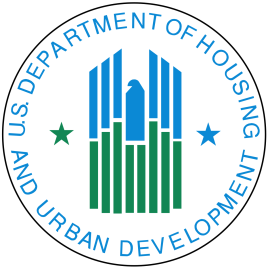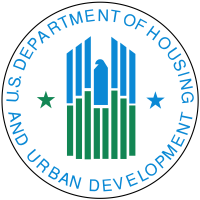HUD Seeks Comments on Burdens When Applying for Assistance

Sometimes the procedures to help those most in need can be so difficult and burdensome that potential participants won’t attempt to apply for benefits under the program. This is the concern that the Department of Housing and Urban Development (HUD) seeks to address in a recent request for comments, whereby it is calling for public comment regarding the burden faced when applying for or maintaining eligibility for HUD's housing programs.
“HUD recognizes that these administrative hurdles and paperwork burdens disproportionately fall on the most vulnerable populations and prevent individuals and entities from accessing benefits for which they are legally eligible,” the agency explains. “Public comment submitted in response to this request for comment will assist HUD in better understanding, identifying and reducing HUD's public program administrative burden and ultimately further its mission to pursue transformative housing and community-building policies and programs.”
Individuals applying for assistance from the agency may be required to complete forms that may ask them to provide a list of family members, the family's total annual family income, the assets available to each family member in the household, and the value of such assets in order to access public housing. This creates burdens by requiring individuals to spend time gathering records and documentation needed to prove eligibility, travel time associated with developing and submitting the collection, or even time waiting to speak with agency personnel.
HUD urged stakeholders, when providing comments, to address the following questions:
- How can HUD reduce its public program administrative burden across HUD's public benefits programs, and is there information currently being collected by HUD or HUD program administrators that have no apparent use or benefit or can be streamlined?
- Are there eligibility requirements or questions on a form for a specific benefit or program that are particularly difficult to understand, respond to effectively, demonstrate initial compliance with or maintain compliance with?
- Does the form include documentation requirements that could be made simpler, less frequent, or more helpful or flexible to meet the ability of respondents to gather the documentation?
- Does completing the form involve multiple touchpoints with either agency or third-party personnel, such as through calls to help lines, in-person visits or consultations, or solicitation of help from other nonprofit, legal aid, private legal counsel or social service agencies?
- Are there significant discrepancies in how certain forms are implemented across states, localities, housing authorities, or other HUD program administrators responsible for collecting this information? Could HUD provide more standardized or template form or web application tools to reduce the need for nonfederal program administrators to develop their own forms or web applications?
- Are there specific challenges that persons with physical, speech, other communication-related, or other disabilities face in these processes that HUD should further address? What strategies or tools might succeed in reducing burden for these groups?
- Are there specific challenges that persons with limited English proficiency (LEP) face in these processes that HUD should further address? What strategies or tools might succeed in reducing burden for these groups?
- What specific challenges or barriers are experienced by other vulnerable sub-populations that may prevent individuals and entities from accessing benefits for which they are eligible? What strategies or tools might succeed in reducing burden for these groups?
- Are there data currently collected by HUD or HUD program administrators that could be shared with other agencies or program administrators to reduce the information collection burden of those programs, or are there data currently collected by other programs or agencies that if shared with HUD or HUD's program administrators could reduce the information collection burden of HUD's programs?
- Are there data collected by HUD that are not currently aggregated and shared publicly that should be aggregated and shared publicly to increase the value of those data being collected?
- How can HUD use artificial intelligence, machine learning, or other advanced data science tools to automate, augment or otherwise streamline its various information collections and the processes they support?
Responses to this request must be submitted by Aug. 14 via Regulations.gov by referring to Docket No. FR-6381-N-01. Hopefully, responses submitted to this request will enable the agency to make its programs more effective for the participants targeted for assistance.
Join us for our following Thompson Grants events:
Thompson Grants Workshop: Indirect Costs | July 25, 2023 | Virtual Event
Federal Grants Forum For Institutions of Higher Education | Sept. 13-14, 2023 | Virtual Event



